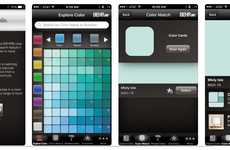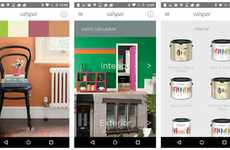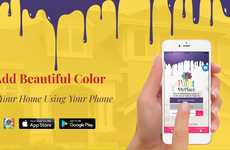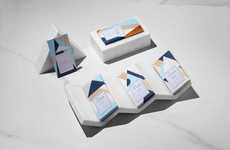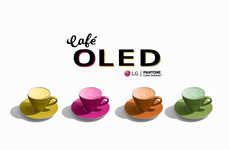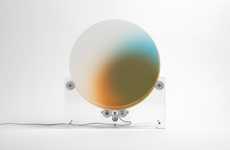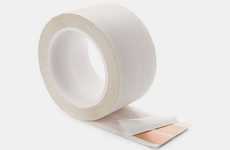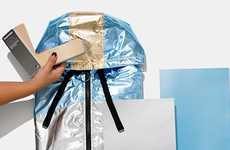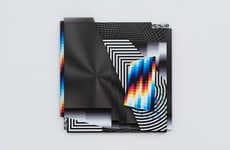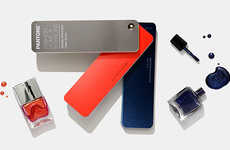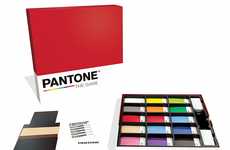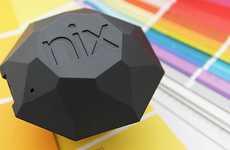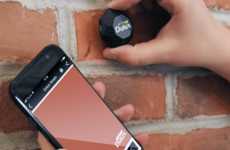

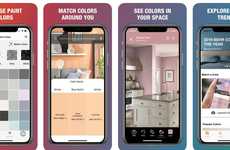
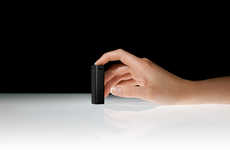
Paint-matching apps offer precision and diversity of application
Trend - Consumers are increasingly turning to apps to allow them to digitally match colors of interest to known paint colors, as well as reflect those colors in a space in real-time--ensuring accuracy in the process of interior design. This shift comes as brands in the design space try to align consumers' preference for customization with their already established digital habits.
Insight - With the growth of online shopping, consumers are now accustomed to purchasing products before having actually tested them. With these new purchase habits has come the occasional added cost when an item is purchased and then discarded for its lack of alignment to the consumers' preferences. Thus, consumers are turning to apps that are able to blend real-world trials with digital ones–allowing them the opportunity to better trust what they decide to spend their money on.
Insight - With the growth of online shopping, consumers are now accustomed to purchasing products before having actually tested them. With these new purchase habits has come the occasional added cost when an item is purchased and then discarded for its lack of alignment to the consumers' preferences. Thus, consumers are turning to apps that are able to blend real-world trials with digital ones–allowing them the opportunity to better trust what they decide to spend their money on.
Workshop Question - How could your brand better customize its consumers' purchase journey?
Trend Themes
1. Rise of Paint-matching Apps - The trend of using apps to digitally match desired paint colors and check colors in real-time is disrupting the interior design space, as brands try to align consumers' preference for customization with their established digital habits. A new opportunity lies in the integration of AI and machine learning technologies to enhance accuracy and precision.
2. Augmented Reality in Home Decor - With the growth of online shopping, consumers are now accustomed to purchasing products before having actually tested them. AR technology is disrupting the industry, providing customers the opportunity to blend real-world trials with digital ones—allowing them to better trust what they decide to spend their money on. Augmented reality applications in the home decor industry as a whole could enhance the customer experience and boost sales.
3. Convenience in Home Design - As technology enables the digitalisation of home design, customers are turning to apps that make the process more convenient and streamlined. Disruption exists in the simplification of the buying process, highlighting the need for seamless integration between mobile apps and physical retail store locations.
Industry Implications
1. Home Improvement Retail - Home improvement retailers could innovate current store layout, design and customer experience such as incorporating digital testing features for in-store product selection.
2. Interior Design - Interior designers can use these apps to enable the visualization of a virtually repainted or redecorated space. Architects could also use similar AR tools to bring digital mockups of buildings to life.
3. Paint Manufacturing - Paint manufacturers have an opportunity to expand its online presence and use AI-based tools to help customers select the best paint for their homes. They could consider incorporating features such as personalised recommendations based on feedback, product ratings, and reviews.
6 Featured, 26 Examples:
73,070 Total Clicks
Date Range:
Jul 19 — Jul 19
Trending:
Average
Consumer Insight Topics:
